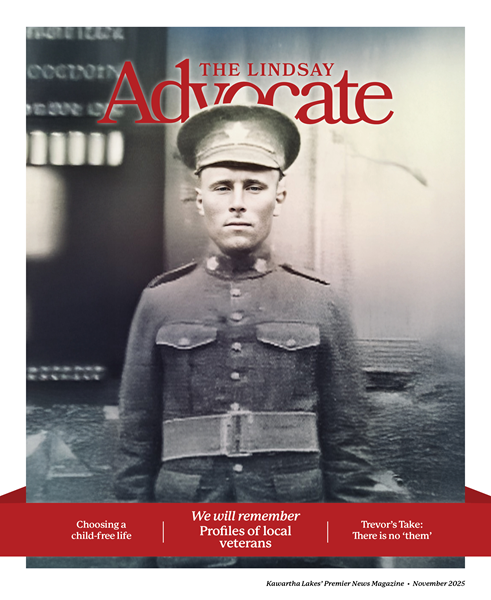Exhausted by car noise?
Aftermarket exhausts on local cars one of the top complaints councillor hears about

Tom MacKay just wants a peaceful night’s sleep – but for the past year, he says, sleep has not come easy.
The 80-year-old Lindsay resident said vehicles with modified exhaust systems have been roaring up and down the street in front of his house at all hours, often waking him in the middle of the night.
The aftermarket exhaust systems on these vehicles are designed to boost horsepower, but they also drastically increase noise.
Last year, MacKay said, a group of youths was frequently racing in front of his home in the middle of the night.
“These cars were racing three abreast,” he told Kawartha Lakes Weekly. “I took videos of it and called the cops.”
MacKay said he also provided police with the licence plate numbers of the cars involved. He said police spoke with the parents of the youths – the vehicles were registered in their names – and the late-night racing stopped.
But excessive noise from other cars didn’t.
MacKay said vehicles with deafening aftermarket exhaust systems continue to be a problem in his Ward 5 neighbourhood.
MacKay eventually bought a sound meter which, he said, has measured noise from vehicles outside at more than 100 decibels – and that’s from inside his basement.
For context, that’s about as loud as a chainsaw at close range, or the sound level near speakers at a rock concert.
MacKay said he believes there should be laws clarifying the exact number of decibels that constitute excessive exhaust noise.
Section 75(4) of the Ontario Highway Traffic Act prohibits vehicle operators from making “unreasonable noise.” As it stands, when police issue fines for excessively noisy cars in the city, the decision is based on their observations and discretion, said Kawartha Lakes Police Service (KLPS) Administrative Sgt. Ryan Boutin.
“Officers enforcing these sections use their subjective observations to determine what is reasonable or excessive,” Boutin said.
Since being elected Ward 5 councillor on April 10, Mark Doble says issues related to traffic behaviour – including excessively loud vehicles – have been the most frequent complaints he receives from constituents.
Some residents have even emailed him MP4 videos capturing the noise made by vehicles with modified exhaust systems in the middle of the night, he said.
“The very fact that they would send me (video) gives an indication of how strong their feelings are about this,” Doble said.
Doble began meeting with city department heads shortly after assuming office, and one of those meetings was with KLPS Chief Kirk Robertson. Doble said the issue of excessive traffic noise was among the topics they discussed.
Doble said he asked Robertson what advice he should give people who call him with complaints about excessive vehicle noise.
“(Robertson) said do not hesitate to encourage people to call the police,” Doble said. “The important thing to do, though, is that if somebody goes roaring up your street at 2 a.m., call the police – but call them at 2 a.m., because there will be (a police officer) in the area, and … they will have a really good chance of catching them.” (Doble is referring to the police station phone number, 705-324-5252, and not 911.)
Calling police the next day, he added, likely won’t help.
Doble also recommended that people write down the licence plate numbers of offending vehicles and send them to police – just as MacKay did.
What residents should never do, Doble noted, is confront offenders themselves.
MacKay echoed Doble’s sentiments about the importance of residents calling police when they’re disturbed by excessively noisy vehicles, adding he hopes more people will file police complaints when bothered by loud exhaust systems.
“The more calls they get, perhaps they might do something more about it,” he said.
In response to public complaints about excessive vehicle noise in recent weeks, Boutin said KPLS has increased patrols in the areas of the city where concerns have been reported, and is “conducting targeted enforcement” aimed at curbing speeding and excessive noise.
“Many vehicles have been investigated, and enforcement actions, including education and laying charges, have taken place,” Boutin said. “The increased presence has been effective in reducing the complaints we are receiving.”





This is the easiest law to enforce. Clearly, the police don’t want to enforce it.